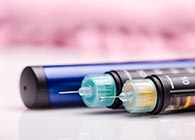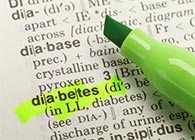 Ramadan is based on the ninth month of the lunar calendar, so this year that the fast of Ramadan 2018 will start on May 15th and will continue for 30 days until Sunday, the 14th of June. During this month it is expected that Muslims who participate will abstain from food, water, beverages, smoking, oral drugs and sexual intercourse from sunrise to sunset.
Ramadan is based on the ninth month of the lunar calendar, so this year that the fast of Ramadan 2018 will start on May 15th and will continue for 30 days until Sunday, the 14th of June. During this month it is expected that Muslims who participate will abstain from food, water, beverages, smoking, oral drugs and sexual intercourse from sunrise to sunset.
Fasting has special consequences for people with diabetes, especially those taking insulin and the risk of complications increases with longer periods of fasting.
People with diabetes may be exempted from fasting but the majority of people with diabetes do fast so run increased risks of adverse health effects, such as hypoglycaemia, hyperglycaemia, diabetic ketoacidosis and dehydration. Most of these are as a result of a reduction of food and fluid intake and the timing of meals.
People have to rely on expert advice from doctors and their personal experiences as there are no evidence-based guidelines for fasting. However, a study carried out in Pakistan in people with Type 1 and Type 2 diabetes has shown that with active glucose monitoring, alteration of drug dosage and timing, dietary counselling and patient education, the majority of patients did not have any serious acute complications during Ramadan.
In addition, the researchers have quoted an observational study which showed people with Type 2 who did not have education about fasting were 4 times more likely to have hypos. Therefore, they recommend that those who do not normally carry out self-monitoring of blood glucose should be provided with meters (Diab. Med. February 2016).
Recommendations
The findings of this and other studies suggest that people with Type 1 and Type 2 diabetes should have an assessment with their diabetes team 1 to 2 months before Ramadan about drug/insulin adjustments, exercise and awareness of the risks of hypo- and hyperglycaemia. If they are ill during the fasting, then they should seek advice from their diabetes team.




































